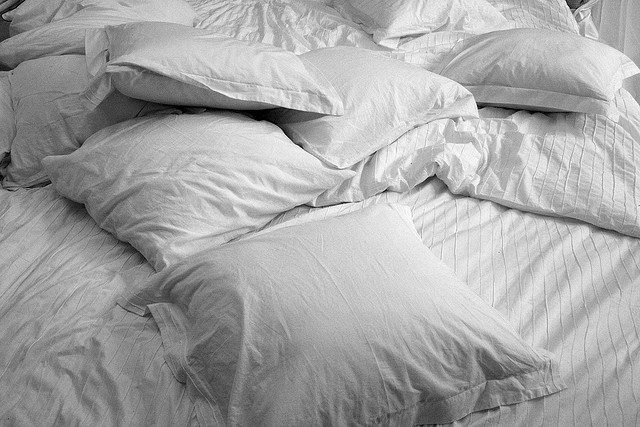
Long workweeks drain us from doing things we love most, like sleeping. The working world allows us to appreciate the small things in life we’re deprived of most. Getting no sleep is unhealthy, but according to a study, so is sleeping in. We leave sleeping in for Saturday’s and Sunday’s trying to recuperate from the long hours we spent in the office or on the road the week before. Our brain and bodies are drained, our focus is nearly nonexistent and all we want to do is lay in bed. Still, after getting those hours of sleep we so desperately need on the weekend, we may not be as refreshed as we think we are, according to a study first published by Runner’s World.
Runner’s World first reported that “catch-up sleep,” like sleeping in on weekends, won’t actually do much to increase our brain, or overall, health. Researchers from Penn State, University of Crete, University of Athens and New York School of Medicine conducted the study, discovering that sleeping in on weekends doesn’t improve brain performance. In other words: sleep deprivation continues to ruin our health one dreaded alarm after another. On weekends, it’s relaxing to get a few extra hours in, and although we may feel refreshed, our brain is actually still deprived.
This study took over a dozen men and women to sleep in a lab over the course of two weeks. There, doctors took daily measurements of their inflammatory and stress hormones, sleepiness levels, and brain function. Though the inflammatory and stress hormones returned to normal levels after a good night’s sleep, the brain functioning didn’t get better with extra sleep over a few nights.
“The usual practice of extending sleep during the weekend is not adequate in reversing the cumulative effects on cognitive function resulting from mild sleep deprivation,” Dr. Alexandros Vgontzas, M.D., director of the Sleep Research and Treatment Center at Penn State, told Runner’s World.
This sleep deprivation has been a hot topic in the medical world for years. It’s been proven that sleep deprivation can’t be made up in a few days’ time. Like anything, true health must be maintained over a long period of time. Consistency allows our bodies to be regulated.
People can combat this sleep deprivation, and lack of brain function, by trying to add an hour or two of sleep every night. This allows our bodies to become more adjusted to a better night’s sleep. Experts recommend waking up at the same time each morning, including the weekends, to allow your body a set schedule. Every person recommends a different amount of sleep, specific to age group and stress levels, but by getting over 7 hours a sleep per night is typical in achieving better health.
In this day and age, it’s easy to get caught up in what we should and shouldn’t be doing. Not to mention, our health usually sits on the backburner compared to other important things in life, like work and family. Listening to your body is key when trying to maintain maximum health, especially sleep.
What are your tips for sleeping better?
h/t Huffington Post; photo credit: just.Luc via photopin cc









![Daily Bite [Make]: Philly Cheesesteak Stuffed Bell Peppers](https://dashofwellness.com/wp-content/uploads/2013/01/Philly-Cheesesteak-Stuffed-Pepper-Daily-Bite-1-100x70.png)

I go to bed and wake up every day at the same time. Plus or minus ten to fifteen minutes. This helps me stay on an even keel all day long, with loads of energy! 🙂 I go to happy hour with friends at night so that I can get home by a reasonable hour so as to get to sleep on time. I also wake up relatively early to get in a nice work out.